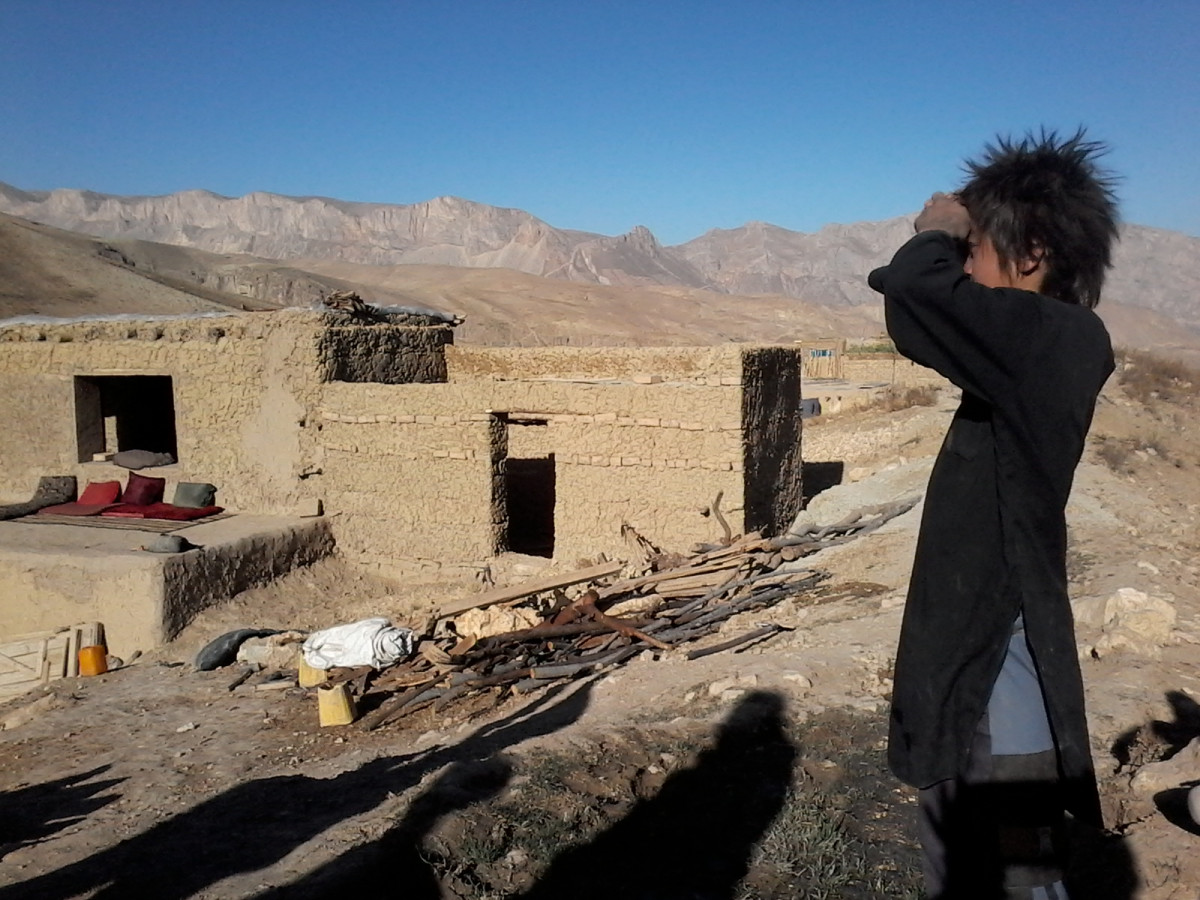We have helped 357 families affected by floods in Afghanistan build new houses
Published: Sep 2, 2015 Reading time: 4 minutes Share: Share an articleMore than 3000 Afghan families lost their homes in the spring of 2014. The north of the country was hit by the most disastrous floods in the last 80 years. The level of destruction was especially bad in the lowland of the Jowzjan and Balkh provinces. Thanks to our emergency response programmes, we helped build 357 new houses.

Most of this project, construction of 290 houses, was financed by the EU Humanitarian Aid and Civil Protection department (ECHO). The remaining 67 houses were built by the People in Need (PIN) together with the German Alliance2015 partner Welthungerhilfe with financial support from the German Ministry of Foreign Affairs and UN Office for the Coordination of Humanitarian Affairs (UN OCHA). However, apart from the immediate aid, it is necessary to focus on disaster prevention and damage mitigation.
#~gallery-1347~#
“During the last ten months, our local team assisted 1278 people in 24 villages. They have assessed the level of environmental danger and developed the best frame for local disaster prevention,” says Pia Jensen, PIN’s coordinator of humanitarian aid in Afghanistan.
„By doing hazard mapping in the surrounding areas together with the communities PIN does not only map the potential risks of natural disasters such as flash floods and landslides, the community also identifies immediate measures to take in order to prevent such disasters to occur in the first place. The DRR trainings also focuses on linking deforestation, which is a growing problem in Afghanistan, with soil erosion and landslides, and thereby explaining that some disasters can also be manmade,“ says Pia Jensen.
We teach how to build more resistant houses
Before starting the construction of the houses, PIN together with ECHO and Welthungerhilfe facilitated a Build Back Better (BBB) workshop for all affected families enrolled in the program. The workshop focused on improved building techniques which were developed on the basis of local techniques. „The most important thing was to make sure that the families could rebuild their own houses. We did only support them with technical advise,“ says Pia Jensen. „The main goal was to make sure that the knowledge of building back better would remain with the communities to be shared with future generations, empowering and making the community more resillient to future disasters,“ she adds.
 “We showed how to properly build a house and then repeatedly checked, if the agreed standards were respected. We focused on more sound foundations or brickwork. This was followed by cash grants for each part of the building process,” explains Jaroslav Petřík, PIN’s desk officer for Afghanistan. In case of future floods, the houses will be able to withstand much more.
“We showed how to properly build a house and then repeatedly checked, if the agreed standards were respected. We focused on more sound foundations or brickwork. This was followed by cash grants for each part of the building process,” explains Jaroslav Petřík, PIN’s desk officer for Afghanistan. In case of future floods, the houses will be able to withstand much more.
Local communities appreciate our assistance and training. “We have received multiple letters from local authorities and communities thanking us for the support that we provided. In fact, the communities should be thanking themselves for not losing all hope because of the devastating disaster like the one we saw last year,” says Pia Jensen. “These people lost everything. It is inspiring to see whole communities come together like that and support each other in rebuilding their houses and most importantly their lives, once they were provided with the resources to do so,” she adds.
Based on this experience, ECHO has created a set of shelter construction standards that has been shared with the humanitarian community and local authorities and are now used all across the country.
Aid for 10 000 people
During our ten-month long Emergency Response Mechanism project (ERM), the People in Need responded to 11 sudden incidents such as conflict-induced displacement or natural disasters, and provided aid in 6 local emergencies. “In three areas, we provided financial and material aid. The remaining three areas were helped only by cash grants because of security or logistical concerns. In the end, we have assisted more than 10 000 people,” says Pia Jensen.
More than 90% of beneficiaries indicated that the cash grants were provided in the right time and for the most vulnerable families. If there will be more floods in the future, our humanitarian workers can quickly and efficiently assist in the most afflicted regions thanks to this experience.
